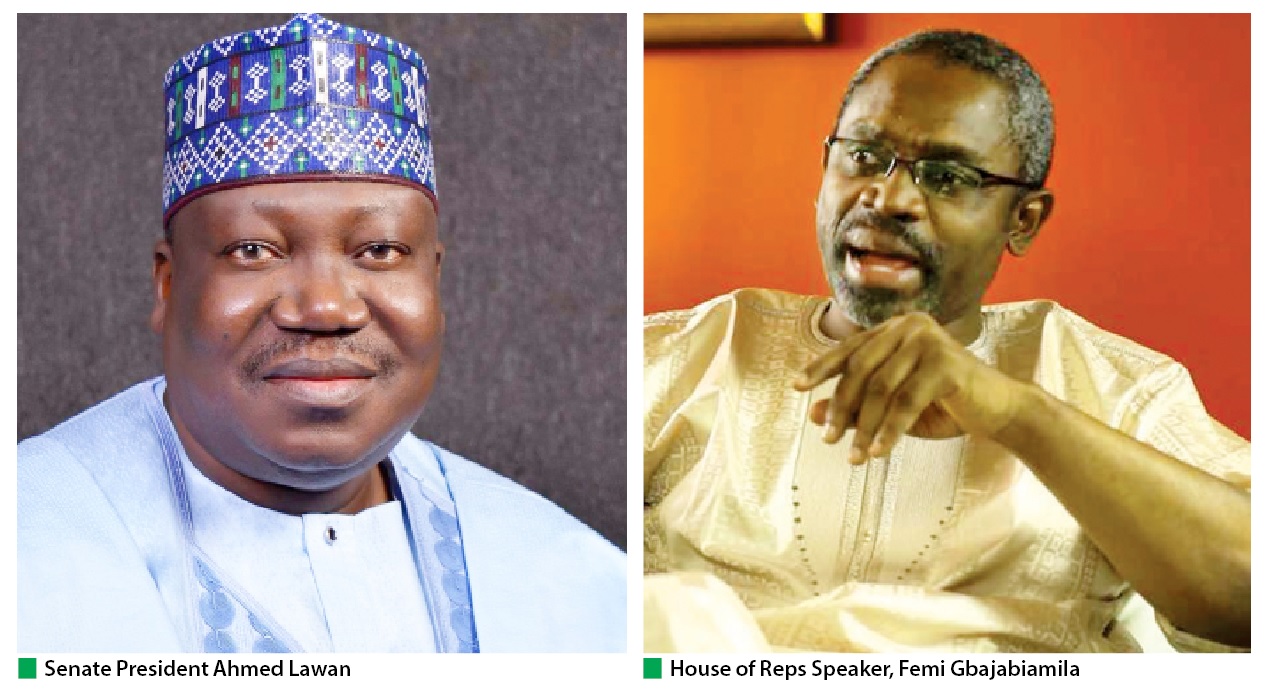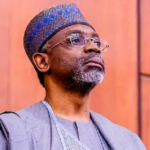The 9th National Assembly, on Friday, clocked two years. Since its inauguration on June 9, 2019, it had been largely a rancour-free federal parliament, devoid of acrimony that characterised its predecessor. Daily Trust examines the highs and lows of the current parliament.
Senate President Ahmad Lawan and House of Representatives Speaker, Femi Gbajabiamila, quickly set the ball rolling with their legislative agenda – a set of targets they planned to achieve in a span of four years.
- OPC member butchers 20-year-old lady for rituals in Osun
- OAU’s entrepreneur programme ‘ll enhance graduate employment – VC
The key focus areas of the agenda are the economy, security, constitution amendment, anti-corruption legislation, judiciary reform, electoral reforms, and socio-economic development through poverty alleviation, jobs creation, education and healthcare.
Two years down the line, a number of them have been achieved, while others are still in the pipeline.
In the second year, the 9th National Assembly maintained its record of January-December budget cycle, against the practice of delayed passage of budgets, which experts said had done incalculable harm to the economy over the years.
The country also witnessed mounting security challenges during the period under review, with security forces stretched almost to their limit.
This prompted torrent of bills and motions in both Senate and House of Representatives to address the situation; sometimes bringing a clash between the executive and the legislature.
Chief among them was the persistent calls for the replacement of the past Service Chiefs over their failure to address the worsening insecurity and the attendant wanton killings and destruction of properties across the country.
After repeated calls, the Service Chiefs were replaced. After the change, insecurity continued unabated, and this dominated discussions in both chambers, with the lawmakers calling for drastic actions to stem the tide.
Many of the lawmakers, including those from the ruling All Progressives Congress (APC), have been critical of the federal government’s handling of the situation, with some saying the president had failed to guarantee security, the primary purpose of government.
Senate President Ahmad Lawan told his colleagues that though their lamentations were genuine as insecurity spreads largely unchecked across the country, the security agencies were overwhelmed and not adequately equipped to protect the country.
At a point, President Muhammadu Buhari was invited to speak to the parliament on the troubling security challenges. He initially agreed but later declined after a controversial statement by the Attorney General of the Federation (AGF), Abubakar Malami.
The parliament also amended the Police Act to conform with modern policing, especially with the fallout of the #EndSARS protests which led to the scrapping of the Special Anti Robbery Squad (SARS) outfit.
The House recently conducted a ‘Security Summit’ which marked another effort at tackling the security challenges facing the country.
Speaker Gbajabiamila promised that resolutions reached at the summit will be submitted to President Muhammadu Buhari for consideration and implementation. Like the previous resolutions, the president may decide to implement them or archive them.
Review of the 1999 constitution tops the items of the legislature’s agenda. The committees of both chambers on the review of the Constitution had received over 250 memoranda and just concluded national and zonal public hearings, which allowed Nigerians to make inputs into the process which will be incorporated into the various sections of the Constitution slated for amendment.
The parliament has promised to conclude work on the constitution review before its July summer break.
Bills passed
The Senate passed hundred of bills, including confirmation of appointments for executive arm of government.
About 742 bills were introduced in the Red Chamber during the last two years, out of which 58 have been passed. 355 bills have gone through first reading; 175 have gone through second reading and have been referred to the relevant committees for further legislative business, while 11 bills referred by the House of Representatives for concurrence have also been passed.
Notable among the bills passed by the Senate are: Deep Off-Shore and Inland Basin Production Sharing Contracts Act CAP D3 LFN 2004 (Amendment Bill, 2009); Finance Bill 2019 (Nigeria Tax and Fiscal Law) (SB.140); Companies and Allied Matters Act, Cap C20 LFN 2004 (Repeal and Reenactment) Bill 2019 (SB.270).
Others are: Asset Management Corporation of Nigeria (AMCON) Amendment bill, which empowers the agency to seize all assets traced to debtors; a bill that prohibits employers discriminating between first degree and Higher National Diploma (HND) holders; Firearms Act 2004 (Amendment) Bill 2021; Chartered Institute of Forensic Investigative Professionals of Nigeria (Establishment) Bill 2021, among others.
No fewer than 50 out of the 58 bills so far passed by the 9th Senate are awaiting either the presidential assent or the House of Representatives’ concurrence.
In the 8th Senate, no fewer than 160 out of 287 bills passed were denied presidential assent.
Lawan blamed officials of the executive arm on the fate that befell the bills. He said some ministry officials have made it their business to frustrate bills passed by the National Assembly by ensuring they are denied presidential assent.
He said: “Sometimes, the National Assembly will process a bill and the bill would be taken to Mr. President for his assent, and somebody will just go round and mis-advice that the bill shouldn’t be assented to, mostly ministry people.”
Loan approvals
The speed with which the 9th National Assembly approve loans requests by the executive had attracted reactions from many Nigerians, with critics saying the President Muhammadu Buhari-led administration’s obsession with borrowings and the speedy approvals by the parliament may not augur well for a country with rising debt profile.
Since inception of the parliament, none of the borrowing requests forwarded to the parliament had been rejected. This was not so in the 8th Assembly, where majority of the loan requests were rejected.
The Senate, in March 2020, approved $22.79bn external loan request for Buhari to finance critical infrastructural projects in the 2020 budget. The House of Representatives approved the same borrowing June 2, 2020.
In April last year, the federal government’s N850bn domestic loan request also to finance projects in the 2020 budget got express approval of the parliament.
The following month, the federal lawmakers approved another external loan request of $5.513bn for the president also to fund the revised 2020 budget deficit.
The Senate, in April 2021, approved the sum of $1.5bn and €995 million external borrowings for the federal government.
Another Buhari’s request to borrow N2.3trn ($6.18bn) from foreign lenders to part-finance the budget deficit of N5.602trn in the 2021 Appropriation Act, had been referred to the Senate Committee on Local and Foreign Debts for further legislative action, two weeks after the letter was read on the floor.
Failed promises
The Senate is yet to conclude legislative work on the much-trumpeted Petroleum Industry Bill (PIB) and Electoral Act (Amendment) bill, despite promise to pass them in the first quarter of this year.
“Without anybody holding us responsible, we have achieved most of those things that we have set as targets and Electoral Act amendment is one of those targets. By the Grace of God, we will work so hard to pass it before the end of the first quarter of 2021,” Senate President Ahmad Lawan had said in a remark while declaring open a public hearing on the bill last December.
This promise has not been kept, triggering several protests at the National Assembly and other stakeholders’ meeting calling on the lawmakers to fast track the passage.
The parliament had set another June 2021 deadline to pass the bills and whether or not the target will be achieved, time will tell.
Reps’ two years of challenging legislative functions
Like the first year, the 9th House had another challenging time as regards to legislation, oversight and other functions.
Both years were characterised by the challenges of COVID-19 which manifested in various forms to make the work of the legislators a bit difficult as almost all their activities were determined by the COVID-19 protocols.
Their movements and engagements were highly restricted with the chambers largely half empty during plenaries to observe social distancing.
However, despite the restrictions and other hindrances, the House had recorded modest achievements and courted controversies, which pitched them against Nigerians.
The House had in its first year considered 850 bills and 394 motions.
At the outset of the COVID-19 pandemic, the House passed the Emergency Economic Stimulus Bill 2020 to give a lifeline and support to both the private and public sector of the economy.
However, the House also courted controversy when it introduced the “Infectious Diseases Control Bill”, sponsored by the Speaker Femi Gbajabiamila.
The bill which was introduced as an emergency legislation to address the challenges posed by COVID-19 and future pandemics was condemned as being too authoritarian, which infringes on rights of Nigerians.
The House was also challenged for its swift passage of some ‘unpopular executive bills’ as well as approval of billions in loans requests by the president which is always justified by the lawmakers amidst protests by Nigerians.
Experts believe that the efforts of the legislators to better the lives of Nigerians and not merely the number of bills passed will be the yardstick to measure their success. Many believe that the parliament needs to work harder to earn the confidence of Nigerians and shed the toga of “rubber stamp”, a soubriquet given to the legislature due to its undue cooperative attitude towards the Executive arm.
Abdullateef Salau, Balarabe Alkassim & Itodo Daniel Sule

 Join Daily Trust WhatsApp Community For Quick Access To News and Happenings Around You.
Join Daily Trust WhatsApp Community For Quick Access To News and Happenings Around You.


